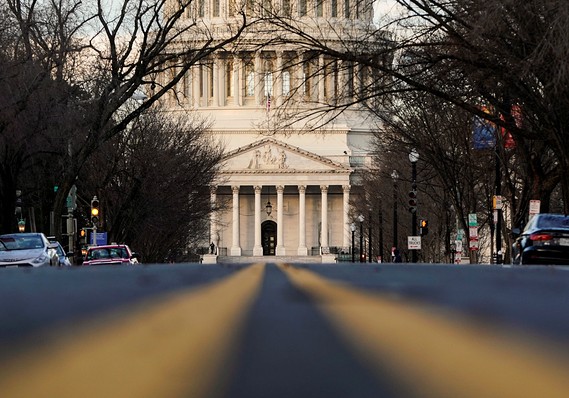 Reuters
Reuters The massive stimulus bill approved by the Senate and under consideration by the House of Representatives to offset the economic effects of the coronavirus epidemic has a provision fund investors should pay attention to, according to one analyst.
The “Cares Act” specifies that any companies that borrow from the U.S. government may not buy back shares of their stock or pay dividends to shareholders for at least one year after the loan is repaid.
“While this is a taxpayer-friendly approach to provide support to businesses in need, it is also a reminder for investors to look inside their dividend fund to understand what they have exposure to,” said CFRA’s head of ETF and mutual fund research, Todd Rosenbluth, in an analysis out Thursday.
CFRA expects companies in the travel sector, such as hotels, resort operators and cruise lines, to see a negative impact from the COVID-19 outbreak, while supermarkets, providers of household products, and biotechnology and pharmaceutical companies will benefit.
As a reminder that the coronavirus isn’t the only headwind weighing on financial markets, CFRA noted that companies tied to oil-and-gas equipment and services and exploration and production will be negatively impacted by the global oil price war.
Rosenbluth examined two popular exchange-traded funds to highlight what differences in portfolio composition might mean for dividends. The First Trust Value Line Dividend Index ETF FVD, +5.15% has 12% of its portfolio invested in consumer staples, and 8% in health care, with only 2% in energy, a lineup that might withstand the downturn.
It is worth noting, however, that half of that ETF’s top 10 holdings are in financial companies. Financials face a double whammy in the current environment: it’s very hard for them to make money when interest rates are so low, and they are expected to bear the brunt of a coming wave of corporate bankruptcies and defaults.
In contrast, another ETF, the iShares Core High Dividend fund HDV, +5.75%, has a 24% weighting in energy stocks, Rosenbluth noted. That may be somewhat mitigated by a strong position in health care, he said.
Read: ETFs, born from 1987 market crash, are so far making 2020 less awful
div > iframe { width: 100% !important; min-width: 300px; max-width: 800px; } ]]>










Add Comment